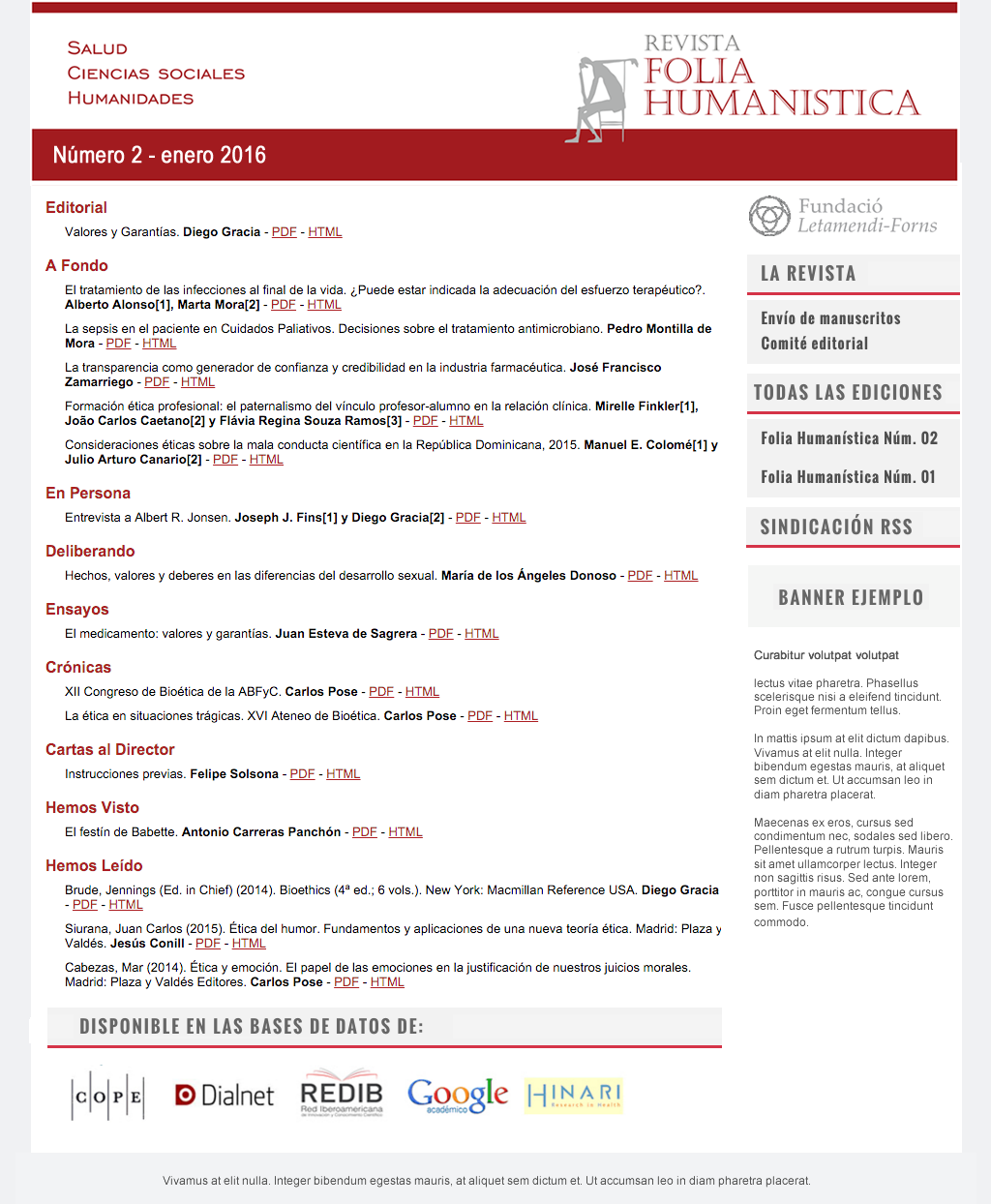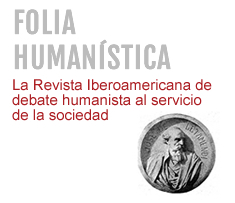IS DIAGNOSING STIGMATISING?
DOI:
https://doi.org/10.30860/0094Keywords:
Stereotypes, Prejudices, Neurodevelopmental Disorders, Neurodiversity, Stigma, Psychosocial Adaptation, Medicalization, Equal Opportunities, Natural Life Model, Adaptive ModelAbstract
Neurodiversity can have consequences on equal opportunities and social acceptance. Different strategies improve psychosocial adaptation and quality of life, but these strategies require - almost always - an early diagnosis. However, to achieve this, we must overcome some professional and citizen reluctance, justified by the fear of stigmatizing or pathologizing almost normal behaviours. Educators and health professionals should not assume that patients and relatives understand the value that provides a good diagnosis in the patient’s quality of life. Demonstrating the effectiveness of evidence -based interventions, can pave the way to greater precision and acceptance in the diagnosis of neurodevelopment and mental disorders.
References
American Psychiatric Association DSM-5. Manual diagnóstico y estadístico de los trastornos mentales Ed. Médica Panamericana Madrid 2018. ISBN: 9788491103721.
DSM-5. Material complementario. Entrevista de formulación cultural y módulo suplementario. Accesible en (verificado 20/01/2023): https://www-medicapanamericana-com.sire.ub.edu/materialesComplementarios/DSM-5/cap/2/7/DSM5-MedidasEvaluacion-Entrevista-formulacion-cultural-(EFC).pdf. Modulo suplementario: https://www-medicapanamericana-com.sire.ub.edu/materialesComplementarios/DSM-5/cap/2/7/DSM5-MedidasEvaluacion-Modulos-Suplementarios.pdf
World Health Organization. International Classification of Diseases for Mortality and Morbidity Statistics (11th Revision) (ICD-11). WHO, 2018 [en línea] [consultado el 21/01/2023]. Disponible en: https://icd.who.int/browse11/l-m/en.
VV.AA. Protocolos diagnósticos y terapéuticos en Pediatría de la Asociación Española de Pediatría (AEP). Disponible en: https://www-aeped-es.sire.ub.edu/protocolos.
Carballal Mariño M., Gago Ageitos A., Ares Alvarez J., del Rio Garma M., García Cendón C., Goicoechea Castaño A., Pena Nieto J. Prevalence of neurodevelopmental, behavioural and learning disorders in paediatric primary care. Anales de Pediatría (English Edition), Volume 89, Issue 3, September 2018, Pages 153-161.
Borrell, F., “La hipótesis de una vida natural”, en: Folia Humanística, 2017; 5: 32-41. DOI: http://dox.doi.org/10.30860/0023. Accesible en (verificado 20/01/2023): https://revista.proeditio.com/foliahumanistica/article/view/1186.
Ortega, F. The Cerebral Subject and the Challenge of Neurodiversity. BioSocieties 4, 425–445 (2009). Disponible en: https://doi.org/10.1017/S1745855209990287.
Ismail FY, Fatemi A, Johnson MV. Cerebral plasticity: Windows of opportunity in the developing brain. Eu J Paediatr Neurol. 2017;21:23-48.
Robert D. Austin and Gary P. Pisano. Neurodiversity as a Competitive Advantage Why you should embrace it in your workforce by. Harvard Business Review. May–June 2017 issue (pp.96–103). Disponible en: https://hbr.org/2017/05/neurodiversity-as-a-competitive-advantage?autocomplete=true.
Bosch R, Pagerols M, Rivas C, Sixto L, Bricollé L, Español-Martín G, Prat R, Ramos-Quiroga JA, Casas M (2021). Neurodevelopmental disorders among Spanish school-age children: prevalence and sociodemographic correlates.Psychol Med. 2022 Oct;52(14):3062-3072. Pag. 1–11. Disponible en: https://doi.org/10.1017/ S0033291720005115.
Carballal Mariño M., Gago Ageitos A., Ares Alvarez J., del Rio Garma M., García Cendón C., Goicoechea Castaño A., et al. Prevalencia de trastornos del neurodesarrollo, comportamiento y aprendizaje en Atención Primaria. An Pediatr (Barc). 2018;89:153-161.
VV.AA. Recomanacions del Comitè de Bioètica de Catalunya davant el rebuig dels malalts al tractament Aprovat en la sessió plenària de 9 de març de 2010 del Comitè de Bioètica de Catalunya. Generalitat de Catalunya. Barcelona 2010. Accesible en (verificado 20/01/2023): https://canalsalut.gencat.cat/web/.content/_Sistema_de_salut/CBC/recursos/documents_tematica/recomanacions_davant_rebuig.pdf.
Austin, J.L. 1962. How to do things with words. London: Oxford University Press. Accesible en (verificado 20/01/2023): https://www.academia.edu/36270217/Austin_1962_how_to_do_things_with_words.
Taylor H Vestergaard MD. Developmental Dyslexia: Disorder or Specialization in Exploration? Front. Psychol. 13:889245. June 2022. Disponible en: https://doi.org/10.3389/fpsyg.2022.889245.
Furczyk, K., Thome, J. Adult ADHD and suicide. ADHD Atten Def Hyp Disord 6, 153–158 (2014). Disponible en: https://doi.org/10.1007/s12402-014-0150-1.
Roy, M; Dillo, W; Emrich, H M; Ohlmeier, M D. Asperger´s Syndrome in Adulthood. Dtsch Arztebl Int 2009; 106(5): 59-64. DOI: 10.3238/arztebl.2009.0059.
Fritz K, Russell AMT, Allwang C, Kuiper S, Lampe L, Malhi GS. Is a delay in the diagnosis of bipolar disorder inevitable? Bipolar Disord. 2017 Aug;19(5):396-400. Disponible en: https://doi-org.sire.ub.edu/10.1111/bdi.12499.
Asma S, Gabriel R. The Emotional Mind: The Affective Roots of Culture and Cognition. Harvard University Press. Cambridge, (2019). ISBN 9780674980556.
Borrell i Carrió, F. (2019). Pensamiento crítico en los grados de ciencias de la salud. La importancia de educar la percepción como vía para que el estudiante adquiera criterio. Folia Humanística, (11), 44–64. Accesible en: (verificado 20/01/2023): https://revista.proeditio.com/foliahumanistica/article/view/1120.
Mas Salguero MJ. ¿Neurodiversidad o trastorno del neurodesarrollo? Rev Pediatr Aten Primaria. 2022;24:235-9.
Doran E., Henry D. Disease mongering: expanding the boundaries of treatable disease Internal Medicine Journal 38 (2008) 858–861.
Downloads
Published
How to Cite
Issue
Section
License
Copyright (c) 2023 prueba

This work is licensed under a Creative Commons Attribution-NonCommercial-ShareAlike 4.0 International License.
La Revista Folia Humanística se adhiere a Creative Common en la modalidad: Reconocimiento – NoComercial – CompartirIgual (by-nc-sa): No se permite un uso comercial de la obra original ni de las posibles obras derivadas, la distribución de las cuales se debe hacer con una licencia igual a la que regula la obra original.








